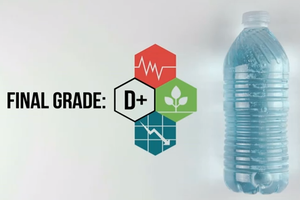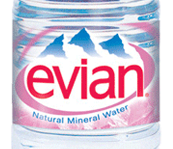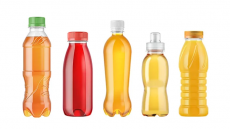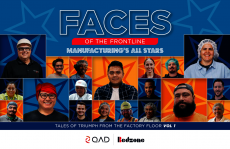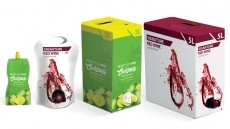Anti-bottled water agenda an ‘easy sell’ to US students: IBWA
Most recently, the University of Vermont announced on January 31 that it would ban sales of bottled water on campus from January 2013 – installing drinking fountains instead – and mandate that one third of drinks offered for sale were 'healthy'.
The ban coincides with the end of a contract with Coca-Cola Northern New England on July 1, whereby it provides 100% of beverages sold in in machines and 80% served in retail, residential dining and catering outlets across campus.
Misplaced student advocacy?
Gioia Thompson, director of the Office of Sustainability at the University of Vermont said: “Students advocating for an end to sales of bottled water have dedicated many hours over the past four years encouraging fellow students to change their habits and persuading administrators to foster a more sustainable beverage system for the community.”
Advocacy groups such as Food & Water Watch claim that bottled water creates "mounds of garbage and other environmental problems", is thousands of times more expensive that tap water and no healthier; the organisation even cites a 2008 study by Naidenko et al. claiming to have detected 38 pollutants in 10 bottled water brands.
But the IBWA hit back at the ban – and even launched an edgy video that you can view below – arguing that some students could instead substitute bottled water for more unhealthy beverages, rather than turn to drinking fountains providing water.
Given the IBWA’s video, suggesting that bottled water was a less than burning political issue compared to other topics, we asked its vice president of communications, Chris Hogan, why the issue had become such a cause célèbre amongst US students?
(Bans are now in place at the University of Wisconsin, Seattle University and Washington University in St.Louis, to name but three US institutions.)
Hogan told BeverageDaily.com that college students cared about the environment, but the IBWA was aware of several anti-bottled water organisations “specifically targeting college campuses in an effort to harness that passion in support of their missions”.
He added:“Unfortunately, spreading an anti-bottled water agenda that is often quite disingenuous and laden with inaccurate claims is an easy sell to students legitimately concerned about these issues. Rarely do I see anyone question the many dramatic claims and accusations leveled against our industry, and that is unfortunate.”
Healthy choices
Attacking one particular product, bottled water, was not a positive approach, according to Hogan:“Studies from beverage companies have shown that when bottled water was removed as an option from a vending machine, people were more likely to choose a different packaged beverage, typically high-calorie sodas or juice drinks, rather than seek out tap water.”
Since consumers often purchased bottled water "on the go", if it was removed from sales, then the only alternatives tended to be sugary, high calorie drinks, he added.
“If the ban applies to bottled water, then by definition any other allowed packaged beverage receives preferential treatment in terms of market access. Any claims of environmental focus are significantly weakened as removing only one product, the healthiest packaged beverage…rings rather hollow.”
Hogan added: “The University of Vermont ban specifically calls for vending machines to contain one third healthy beverage options, however, the same ban specifically targets the healthiest possible beverage by removing it as a choice.”
But surely fewer bottles littering up college campuses – rather than finding recycling streams – was a good thing, even if (according to the IBWA) plastic water bottles only accounted for 0.03% of the US waste stream?
Hogan replied that the bottled water industry supported increased recycling rates, and that awareness of its importance was high on college campuses, although it was important for everyone to take personal responsibility for the issue.
